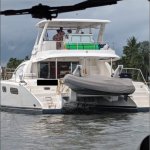Tips to Avoid Boating Accidents and Injuries
In 2017, the United States Coast Guard counted 4,291 accidents that involved 658 deaths, 2,629 injuries and approximately $46 million dollars of damage to property as a result of recreational boating accidents. The good news is that is down from 2016. The number of accidents decreased by almost 4%, the number of fatalities decreased 6% and the number of injuries decreased 9.4%.
The attorneys at Joseph Joy and Associates in Lafayette have years of experience litigating personal injuries and fatalities due to the negligence of someone else. A review of federal boating safety statistics reveal just how preventable these accidents can be:
- Where cause of death was known, 76% of fatal boating accident victims drowned. Of those drowning victims with reported life jacket usage, 84.5% were not wearing a life jacket.
- Alcohol use is the leading known contributing factor in fatal boating accidents; where the primary cause was known, it was listed as the leading factor in 19% of deaths.
- 81% of deaths occurred on boats where the operator did not receive boating safety instruction. Only 14% percent of deaths occurred on vessels where the operator had received a nationally-approved boating safety education certificate.
If you are going out on a charter vessel, check out your charter boat to make sure that they have the requisite safety and experience. The United States Coast Guard inspects charter boats regularly to make sure that they are not overloading the boat and that they have enough safety equipment, including flotation devices for all passengers, necessary equipment and tools to prepare the boat should it be necessary and a crew that is trained and in compliance with Federal Coast Guard regulations. In addition, ask the charter operator whether the crew is regularly screened for drug use.
The Louisiana Department of Wildlife and Fisheries offers a free boating course http://www.wlf.louisiana.gov/boating/courses that lasts between 6 and 8 hours. Participants usually complete the course in one day. LDWF encourages every boater to take a boater education course. However, Louisiana law requires that all boaters born after January 1, 1984, complete a boating education course and carry proof of completion to operate a motorboat in excess of 10 horsepower. The person may operate the boat if accompanied by someone over 18 years of age who, if required, has completed the course. The minimum age for Boater Education Certification in Louisiana is 10 years old. Youth younger than 10 years of age may take the course, but they are not eligible to be certified and must retake the course to obtain certification when they reach 10 years of age or older. A person who is licensed by the U.S. Coast Guard as a captain to operate a vessel is exempt from boater education requirements.
The course includes information on choosing a boat, classification, hulls, motors, legal and equipment requirements, navigation rules, navigation charts, trailering, sailboats, and related subjects that include canoeing, personal watercraft and more. Participants who complete the course will receive a Boater Education Card.
View of copy of Louisiana’s Boater Education Handbook online.
The Wildlife and Fisheries pre-departure checklist is a good starting point:
- Always check the weather forecast before going out
- Make sure that the steering and throttle controls operate properly and all lights are working properly.
- Check for any fuel leaks from the fuel lines, tank and carburetor
- Check the engine compartment for oil leaks
- Check hose connections for leaks or cracks and make sure these clamps are tight
- Drain all water from the engine and be sure the bilge plug is replaced and secure
- Check to be sure you have a fully charged engine battery and fire extinguishers.
- If so equipped, make sure the engine cutoff switch and wrist lanyard are in good order
- Make sure you have the required number of personal flotation devices and check that they are in good shape leave a float plan with a reliable friend or relative
Here is a helpful guide outlining federal boating equipment requirements. Note: these are minimum requirements and do not guarantee the safety of your vessel or its passengers. That’s up to you.
If you are a loved one sustained a personal injury on board a vessel or boat due to the negligence of someone else, contact the personal injury lawyers at Joseph Joy and Associates at 337-232-8123.




